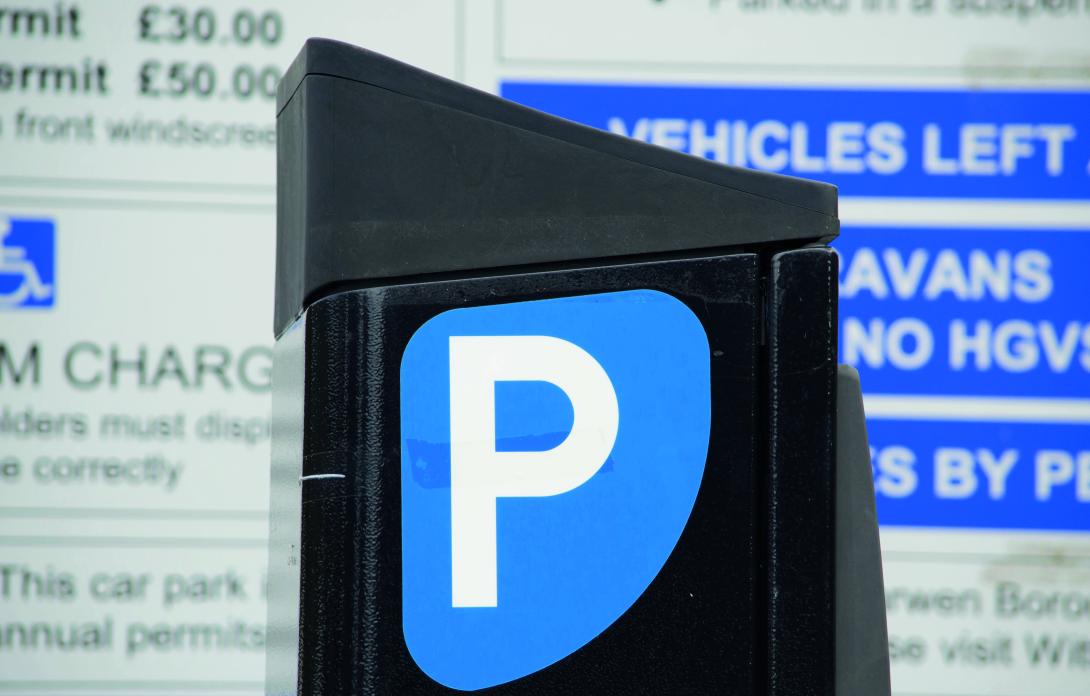In our second Health Business Expert Panel on parking we are joined by representatives from Debt Recovery Plus, GroupNexus, WPS Parking and the British Parking Association to discuss the ongoing issues relating to hospital parking
At the start of December last year, data from the Press Association revealed that a third of hospitals in England put up car parking charges in the previous 12 months, with total income rising by 10 per cent. Freedom of information data from more than 140 NHS trusts showed that £254 million had been raised during 2018-19, an increase from £232 million the year before, with hourly charges varying between £4 and £1 for an hour.
As well as highlighting fee increases, the Press Association survey also indicated dissatisfaction with hospital parking charges, with the poll of more than 7,800 people finding that 86 per cent of respondents felt that parking added to the stress of their hospital visit.
Free hospital parking
In the same month, the Queen’s Speech announced that hospital car parking charges would be removed for those in greatest need, benefiting thousands of patients up and down the country. Health Secretary Matt Hancock said that disabled people, frequent outpatient attenders, parents of sick children staying overnight and staff working night shifts will not have to pay for NHS car parking from April 2020. Furthermore, the government will also consider car parking capacity across the country, and how improved technology will reduce burdens for hospitals and take away stress for visitors.
It means that all 206 hospital trusts in England will be expected to provide free car parking to groups that may be frequent hospital visitors, or those disproportionately impacted by daily or hourly charges for parking. As before, any profits from remaining car parking charges must be reinvested into frontline care.
The British Parking Association is supporting the government in developing the proposals, reiterating their desire to help them devise and deliver a solution which helps to make hospital parking better for everyone. The association’s Kelvin Reynolds says that, whilst he believes it is wrong that healthcare budgets should be used to provide parking facilities for those who choose to drive to hospital, the BPA also thinks there should be exceptions, particularly where there is no alternative and especially where long term or vulnerable patients are concerned.
That is a viewpoint shared by our panellists, with Stewart Clure saying that the move is a ‘much needed boost to hospital visitors’. However, the age-old argument remains, with the opinion of our experts all leaning towards there being no such thing as free parking. The NHS receives a steady revenue stream from their parking provisions which helps to support other NHS funded services. Without this income, says Clure, other services would inevitably have to be sacrificed. Grahame Rose agrees, stating that if there were no charges, the costs of car park maintenance, equipment and management would all have to be taken from the healthcare budget. There are numerous estimates but it’s sometimes quoted at £2 million/annum. Rose also highlights that, when it comes to free parking, people who use public transport or taxis don’t get their fares paid.
Aside from the cost argument, Simon Jarvis of WPS points to the environmental and demand issues. In all other forms of parking, charging forms part of a green transport plan which discourages people seeing cars as the default mode of transport. Indeed, WPS were recently criticised by the Green Party for helping a local authority customer to realise a free parking validation scheme to support local retailers because they believed it would encourage people to drive into town.
Supply versus demand
We all know that parking space availability is limited – if parking is free, it is likely that demand will increase which is likely to increase congestion and make finding a space far more difficult. How do we control this if parking becomes free to all or many? Using Scotland as an example, Jarvis claims that free hospital parking is attractive to shoppers and commuters, with cases documented of people leaving their cars in hospital car parks while they fly off on holiday!
On the issue of demand, there is no denying that hospitals are always over-subscribed in terms of their parking capacity, and also worth noting that the NHS has more special requirements and considerations than most organisations offering car parking facilities. However, the problem of abuse by motorists that have no business at a hospital has largely been solved by the introduction of parking systems, whether this is barriers or enforcement via ANPR.
Demand will always outweigh supply in terms of spaces, because hospital parking is not an unlimited resource and users are continuing to grow. Stewart Clure says that there are various ways to manage the staff usage and control dwell times and through close management and flexibility, issues and errors can be controlled.
Kelvin Reynolds highlights the statistic that approximately 64 per cent of all journeys involve a car at some point and an average of 39 million parking acts every day. It is widely considered that promoting sustainable travel will contribute to reducing demand. Choosing an appropriate management system is important too. Proper and effective parking management is essential in our modern society - without it, we all suffer.
Grahame Rose says that GroupNexus works with clients across the UK to bring innovation to this problem, from intuitive, flexible car sharing apps to off-site parking, with car share or shuttles.
Recent parking measuresand future plans
The Conservative success in December’s General Election means that the country is now likely to face another five years of Tory-rule. Given the Queen’s Speech announcement, the way in which parking has become and emotive issue and the prominence of parking in party manifestos, it is important to question how the parking landscape in hospitals has changed since 2010. We have seen more NHS sites implement parking enforcement during the last 10 years, which is now seen as a necessary evil. Stewart Clure, of Debt Recovery Plus, says that whilst some NHS trusts used to think of enforcement as a dirty word, it is now often one of the most talked about hot topics at any NHS site. The reason for more trusts taking up operator services is simply because the industry has strengthened during the last 10 years, with the introduction of POFA, banning of clamping and towing- which means that the only legal way to protect their land is to introduce a robust parking management system.
In terms of the two largest political parties, the Labour Party has a long standing pledge to remove parking fees altogether in England, following on from the abolishment of parking fees at most NHS hospitals in Scotland and Wales in 2008. The Conservatives meanwhile have more recently launched their car parking pledge to introduce free car parking at hospitals for the two million ‘blue badge’ disabled drivers and passengers, as well as frequent outpatients, gravely ill patients, visitors to relatives in hospital for extended periods, and staff on night shifts who cannot use public transport.
Speaking in terms of policy, the Parking (Code of Practice) Act came onto the statute books in March 2019. It’s an enabling Act that provides for the creation of a single Code of Practice regulating private parking firms, and provides for the creation of a single independent appeals service for challenging parking charges.
Simon Jarvis says that the real change we are seeing is hospitals’ ability to fund the right approaches to parking. This is impacting their ability to invest in parking solutions which: are simple and stress free for all to use; are considered fair; are efficient to operate; effectively control demand and space occupation; offer very easy ways to apply concessions (which is even more important now); and avoid possible punitive fines wherever possible.
This is echoed by Grahame Rose, our representative from GroupNexus, who points to the British Parking Association’s Code of Practice, which has been in circulation for many years. Bringing this into legislation – it will be compiled by the British Standards Institute – will change the landscape for parking operators. He says that a single appeals service will also take away any confusion and anomalies that sometimes occur under the current two appeals services (the other is run by the International Parking Community). However, with the free parking for specific groups announcement fresh in the mind, there is no doubt that change over the next ten years may be more dynamic than the ten years just passed.
When people do not pay
Debt Recovery Plus is the leading provider of debt recovery services for the private parking sector in the country, and knows better than most the need to ensure debts are paid and issues resolved as quickly, and with as little disruption to the hospital, as possible. Through close reporting, management and direct relationships between the company and the NHS, Stewart Clure says they can help to identify any issues that may occur and help to work out new ways to improve services. In most situations, whether that be a staff member who has a permit issue or a family member who is visiting a sick relative each day who simply can not afford their parking, it is important to ensure an amicable solution is reached - often helping the motorist to understand the reason for issuing the charge and the consequences of not paying.
Kelvin Reynolds says that it is important to consider the outcome hospitals wish to achieve, stressing that a good working relationship between hospital, parking operators and debt recovery companies is crucial to ensure that parking enforcement is undertaken fairly and responsibly.
Furthermore, every effort should be made to reduce the number of parking charges notices that need to be issued, by ensuring the rules are clear, simple to understand, easy to comply with and, above all, fit for purpose. As Grahame Rose suggests, an appeals decision tree should also be agreed so that appeals are dealt with consistently and fairly.
How to help NHS staff
It is clear that staff parking continues to be a difficult task, especially for NHS organisations. So, aside from the fair/unfair argument, how can the issue best be solved?
Inevitably there will be peak demands and conflicting demands between the priorities of administrators, clinicians, consultants, and facilities teams to name a few. Just how do you determine the priorities? Kelvin Reynolds says that the overarching consideration for us all is climate change and the NHS has been vocal about the role it wants to play in helping to reduce emissions. He says that staff parking requires the same solutions as patient and visitor parking. For staff this means being part of a sustainable travel plan, establishing priorities when and where space is insufficient to meet demand and incentives to reduce the need to travel by car. It’s also sensible to consider working arrangements and shift patterns to determine optimum occupancy.
The solution is not necessarily immediately agreeable. Simon Jarvis points to the very innovative work from some of WPS’ healthcare customers in increasing the price of staff parking, making investments in additional capacity and making offsite parking far more practical and financially attractive.
On the other hand, GroupNexus argues that it is not sustainable, nor in many cases environmentally acceptable, to keep building spaces sufficient to satisfy the demand for staff parking. The real solution, as suggested by Grahame Rose, is to encourage staff to use other forms of transport, car sharing and park and ride. He does concede, however, that encouraging staff to use other ways of commuting needs to be compelling, perhaps including financial incentives, more flexible working practices and better public transport.
Equally, Stewart Clure says that, instead of increasing prices to encourage other modes of transport, NHS staff should receive a discounted rate for parking, often with a designated area for staff only. Alternatively, some operators can subsidise discounts at local contract parking sites for staff in return for a long term contracts.
Ultimately, the BPA says that the answer lies in a good working relationship with the NHS trust working in partnership to deliver the outcome they would like to see.
- - - - -
Our panellists
Kelvin Reynolds, British Parking Association

Kelvin joined the BPA in March 2004 as Director of Operations and Technical Services with responsibility for the Safer Parking Scheme, Approved Operators Scheme as well as managing important stakeholder relationships and the Association’s development of technical services to its expanding membership. He was Parking Services Manager at the City of London for two decades in the 80s and 90s before becoming Transport and Infrastructure Manager at Bluewater, Europe’s largest retail and leisure destination with 13,000 parking spaces.
Stewart Clure, Debt Recovery Plus

Stewart joined Debt Recovery Plus in 2015, having previously spent five years working in the private parking sector. Through his experience of working with clients on retail, commercial, NHS and various other sites, Stewart was able to bring his knowledge of the industry to DRP. Since graduating from Leeds University with a 2:1 in Maths, Stewart worked on the Barclays Graduate Scheme before ending up at Savills.
Grahame Rose, GroupNexus

Grahame joined CP Plus (now GroupNexus) in 1995. He was instrumental in the merger and subsequent formation of GroupNexus. Realising that the future was going to be all about technology and being curious about where this would take the business, Grahame has been the driving force in moving the company’s IT infrastructure and services into the 21st century. Grahame is a Board Member of the BPA, regularly speaking at industry events.
Simon Jarvis, WPS

Simon Jarvis is the UK Managing Director for WPS, a global leader in parking systems for over 25 years, with a long-held reputation for engineering excellence and providing the industry’s most reliable solutions. It is part of Dynniq, a dynamic, high-tech and innovative company with a comprehensive knowledge of managing mobility, parking and energy using advanced systems engineering.





